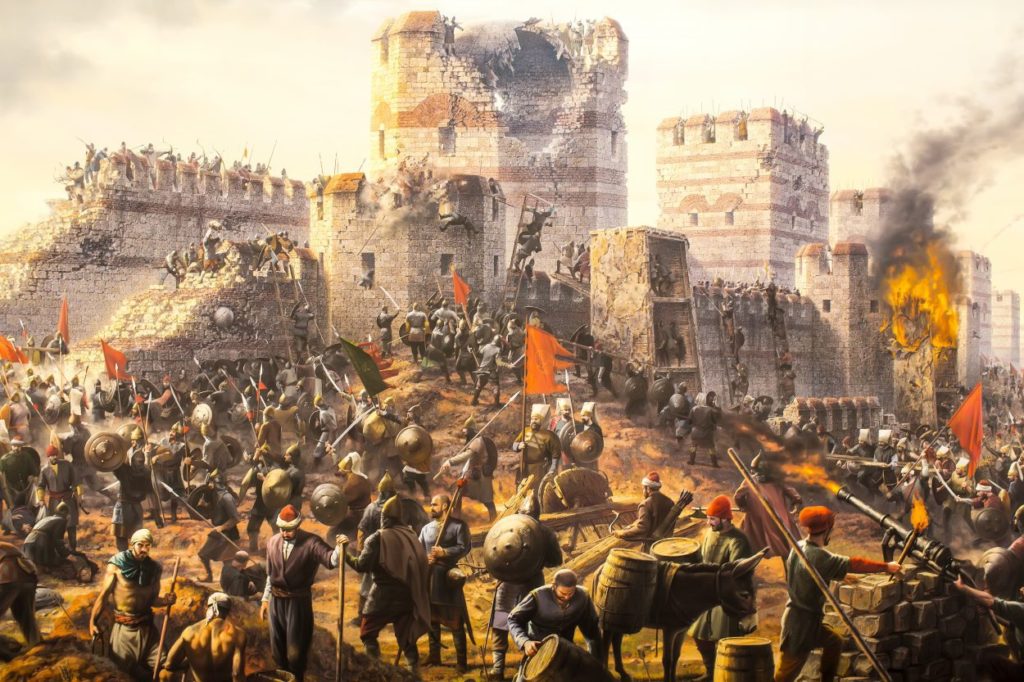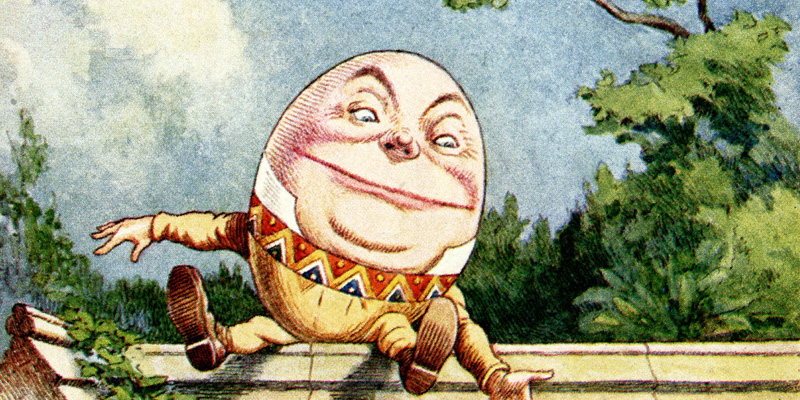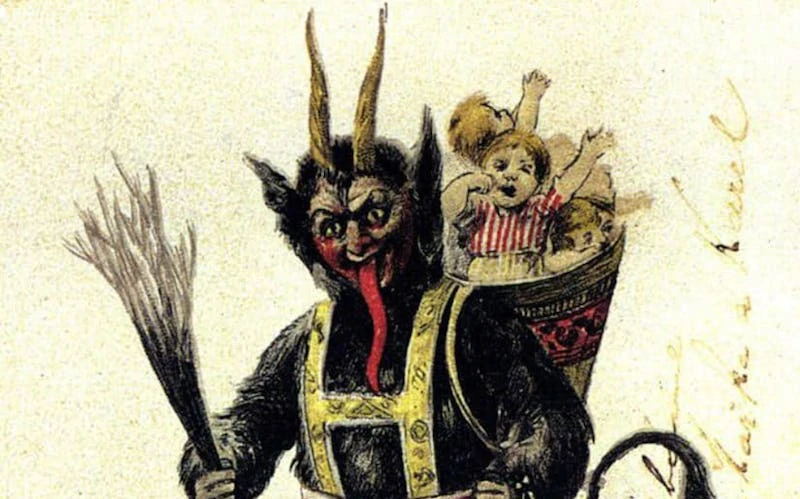Last updated on July 22nd, 2022 at 06:38 pm
The 15th Century was an incredibly dynamic time in world history. In Europe, the Renaissance became more widespread and institutionalized, while in Asia, the great Mongol invasions also began to change society. And, of course, we cannot forget about the advancing threat of Islam. It was a century of advancements and upheavals, ending as much as it began.
There’s no doubt it was a period of continuous change and growth for many different reasons, so let’s deep dive into some of the most iconic events that defined this era and see what the 15th Century was all about.

1492 – Columbus Discovers America
Although the 15th Century was an incredibly dynamic time in the West, it was a particularly epic time in the history of the Americas. The discovery of the New World would eventually transform the world in profound ways that still affect the world today.
For example, the discovery of new resources and a massive increase in population brought about the Renaissance in Europe. This, in turn, brought about the first stirrings of democracy, though it would be centuries before it reached a level of maturity. But the discovery of the Americas was not just an isolated historical incident. It was a significant turning point in the relationship between Western Europe and the rest of the world.
The people of Europe discovered a new sea route to Asia and Africa through the discovery of America. The enormous wealth of the Americas had the potential to change the European economy radically. Countries in Europe would be able to produce goods more efficiently. At the same time, Asia and Africa could access European goods like firearms and other tools of war.
This stemmed from 1492, when Christopher Columbus took his three ships in hopes of finding a faster way to Asia, thus landing in the Americas.
1410 – The Battle of Grunwald
If the 1492 voyage of Christopher Columbus was a major turning point in American history, the Battle of Grunwald was a turning point in European history. The Battle of Grunwald was one of the most significant battles in medieval European history and was one of the first major successes for the new military tactics and organization of longbow military strategy.
Considered one of the largest battles in medieval Europe history, the war was fought between the Kingdom of Poland and the Kingdom of Lithuania, who joined forces against the Teutonic Order. The Teutonic Order was a Catholic military order based in the Baltic region. The Teutonic Order had attempted to conquer the region for some time but was continuously stopped by the Lithuanians and Poles.
The battle occurred near the village of Grunwald on July 15, 1410, and is often known as “the battle of Grunwald” or “the battle of Tannenberg”. The battle was a major victory for the Poles and Lithuanians against the Teutonic Order, but it also brought about major changes in Poland and Lithuania. The battle is considered one of the most important battles in Polish history, preventing a major German conquest.
1455 – The War of the Roses
The War of the Roses is generally considered to have been a proxy war between the rival factions in the royal houses of Europe. However, there was much more to it than that. This series of conflicts changed the course of English history and had a major impact on the future of European power politics.
The war as a whole was certainly fueled by a familial rivalry between the Plantagenet, Tudor, and York houses, but it was also a struggle for power between neighboring kingdoms. This resulted in several battles that changed the face of English history, such as the Battle of St. Albans and the Battle of Towton.
It was a struggle for power, with kings and royal families on all sides vying to take control of the powerful English throne. Control was passed from Edward IV in 1450 to Henry VI, who sat in it for less than a year before Edward stole it back. After Edward passed away, his son, Edward V, took power at just 12 years old, before his uncle, Richard III, stole it. The fighting for power didn’t end until Henry Tudor took the throne after Richard’s death and began the Tudor dynasty by bringing both the York and Tudor families together by marrying Elizabeth of York.
1453 – Constantinople Falls
Constantinople was the capital of the Byzantine Empire, which had ruled much of the Eastern Mediterranean since the 7th Century. The Byzantines were a powerful but corrupt and decadent force, and by the end of the 15th Century, their power was at an all-time low. The Ottoman Turks were a new force in the region, and they had been making inroads into the Byzantine Empire for some time. In 1453, they finally managed to take the city.
The fall of Constantinople was a major turning point, both in terms of the Byzantine Empire and in terms of the rise of the Ottoman Empire. It also left a profound mark on history as the last remnant of the classical world was gone. The Byzantine Empire was gone, and Europe had no direct connection to Asia or Africa. These continents were now completely isolated from the rest of the world.
1431 – The trial of Joan of Arc
The Hundred Years’ War between England and France is generally considered the most crucial event in the two countries’ history. But the trial of Joan of Arc was perhaps even more important. Although the war itself was a major event, Joan of Arc provided the spark that ended the war between England and France.
Joan of Arc was a young peasant girl who had had a vision of the French saints Michael and Catherine. She had claimed that God had sent her to deliver France from English domination. She was tried and found guilty of heresy, but she was also a powerful symbol of the struggle against the English occupation of France. Joan of Arc’s trial was a watershed moment that changed the course of French history. She not only provided a powerful spiritual force for the French people, but she also sparked the first major rebellion against the English in France.
This rebellion would eventually lead to the end of the Hundred Years’ War. The French were able to drive out the English successfully, and they were also able to dissolve the English holdings in France permanently.
1440 – The Printing Press is Invented
The printing press is one of the most iconic inventions of the 15th Century and changed the world as we know it today. The technology was developed by Gutenberg, a German goldsmith who had been experimenting with different ways to produce books more quickly. His discovery is believed to have come at around 1436 when he finally discovered the perfect way to make a type that could be reused and rearranged. By 1440, he had produced a book with 42 lines on each page, and by 1455, he had printed the first complete Bible, known as the Gutenberg Bible.
The printing press was a major leap forward in the development of human communication. It helped spread new ideas worldwide and allowed the mass production of books. Before the printing press, books were expensive and hard to get. Most people could not read, so they could not read books anyway, meaning there was no real purpose for them, except in special royal, religious, or military circumstances.
With the printing press, books became much more common and much more affordable. This was an enormous change in the world. The printing press opened the door for the Renaissance, helped to spread many new ideas, and made it much easier for people to make political statements. In short, the world changed forever.
1493 – The First Venetian Trade Treaty is Signed
The founding of a trade empire is one of the most important achievements a society can make. The Portuguese empire in Asia and Africa is rightly celebrated as an incredible feat of maritime power, but that was a century in the future. It was actually in 1493 that, for the first time, Europe had a direct trading route to Asia. The Middle East had opened up to Europeans through the discovery of the Cape route, which paved the way for even more direct global trade, which was far more successful than anything that had ever existed before the Byzantine Empire.
Now, European goods and goods destined for Europe’s borders, in particular spices and materials like silk, were able to travel directly to the markets of the east. To secure this trade, the Venetian Republic signed a very important trade treaty with the Sultan of Egypt, which would become the model for all future treaties between European nations and the Middle East.
This trade treaty made an enormous difference to the development of the world. It helped to accelerate globalization and the rise of Europe to global dominance. It also greatly increased the wealth of Europe while giving a huge boost to the economy of Venice, which had been a major trading center since the 8th Century.
Moreover, the first voyage of discovery was not even a Venetian one. It had been financed by the Portuguese king and carried out by a Genoese sailor, who happened to be an expert on navigation. Unfortunately, the first trip did not go well. The explorer came ashore in Africa and was killed. The natives attacked his crew, and only one ship made it back to Portugal.
1494 – Dante’s Divine Comedy is Published
Dante Alighieri’s Divine Comedy is one of the most famous works of literature ever written. In its original form, the poem was written in Italian and published in 1494, just a few years before the end of the Century. The poem takes the form of a 3-part journey through hell, purgatory, and heaven. It is generally considered to be the ultimate work of poetry, in the very same league as Shakespeare’s works. While the poem is certainly well-known, it is not well understood.
Even to this day, the poem is not fully understood, as it was written in a very different way than most works of literature. The poem itself is a journey through the afterlife, and it is written in the first person. The true meaning of the poem may never be known, but it has been regarded as an important piece of literature for centuries now. It has been translated into many different languages, and it has inspired many works of art. In fact, Dante’s Divine Comedy has been adapted into operas, plays, and even video games.
1456 – The Ottoman Turks Empire Grows
During the 1400s, the Ottoman Empire began to grow. The empire was founded by one man, Osman I, in 1362. At this time, he was just a small warlord in Bithynia. However, he quickly grew his power and became the leader of a small village. He quickly expanded his rule over more and more territory and eventually formed the Ottoman Empire. This empire would continue to grow throughout the rest of the Century until it encompassed all of Anatolia (the western portion of modern-day Turkey).
By 1456, the Ottoman Turks had taken over Athens, a domination that lasted over 400 years. Four years later, the Turks overran all of Serbia, and by 1463, they were all over Bosnia. Here, they executed the king, Stefan Tomasevic, and claimed the land as their own.
Events of the 15th Century
Though it was a time of great upheaval, the 15th Century also saw some significant advances in science, art, and exploration. It was an era of change that would pave the way for even more progress in the centuries to come. What do you think were the most important events or innovations of the 15th Century?


Paracelsus would have to be one of the most important advances to science in the 15th century.